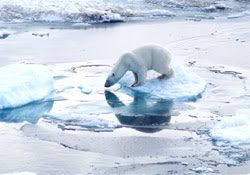Pollution in Black and White
In the warehouse the penguins seemed to stand in ranks. Side by side or in groups they lurked in plastic porta pools like black and white soldiers after a battle lost. Their braying filling the warehouse with a cacophony of sad sound.
The noise made by the birds was incredible. The warehouse was a hive of activity and organisation as birds were divided and housed according to their level of disability. Here the feeding pool, there the scrub room, the tubing room, the drying room...
Each room buzzed with voices and oilskin clad volunteers. They wrestled with birds in various stages of ire at being force fed, washed and fed charcoal to absorb the oil. I had never seen so many people united in a common cause before and I, personally, have not seen it since.
I had never held or worked with a penguin before and I hadn't any clues as to how I was going to deal with these birds. "Are you here for feeding?" a woman's voice echoed in the vast interior of the building. "Yes" I said, deciding that I was. "The fish are over here" she shouted and walked away. "Ok, I thought, "fish over here, bird over there, now what?" I looked at the bird nearest to me. He looked pretty grumpy and I guessed he wasn't going to be easy. I spied a smaller bird who seemed like a better bet. I jumped into the pool brandishing my sardine and approached him.
"Yeah? right!" he seemed to say as he darted off to the other side of the pool. Where was he? They all looked the same now. I tracked him down and headed toward him again trying to figure out how I was going to catch him, never mind feed him. I looked at him, he looked at me and I grabbed at him. Missed. Damn I thought these birds were under the weather. Seem fine to me, send them back! (not really). By now I was getting the idea. The bird needed to be caught and held while being force fed.
I finally figured out a strategy. Bird is hungry. Distract bird by waving fish in the vicinity of eye. Grab bird and hold on with all your might. Shove fish in mouth without losing an eye or an arm. Do it again one hundred more times. When you are finished, do it again.
When you think of penguins you probably think of comical black and white creatures with a Charlie Chaplain like gait that don't seem to command much respect or endearment in the natural world. In 1999, the Treasure oil tanker floundered off the coast of Cape Town spilling its cargo into the Mother city's cold and rich waters.
The oil slick could be seen for kilometres. Miserable, with heads hanging low and unable to swim, keep warm or eat, the African "jackass' penguin had just become the latest victim of progress. To the men and women involved in this rescue effort it was really a race against time.
The bedraggled penguins were rescued by the thousand. The whirr of helicopters and hum of boats both big and small, private, government and commercial heralded what was to become Cape Town's biggest ever bird rescue effort. The South African Foundation for Conservation of Coastal Birds or SANCCOB as most South Africans refer to it, was instrumental in the successful management of this gargantuan task.
Hundreds of dedicated men and women hurtled back and forth from the shores of Cape Town to Dassen Island, Robben Island, Dyer Island and all along the coast to find the birds, box them and ferry them to the warehouse that would be their home for several months.
Each year about 600 million tonnes of oil finds its way around the tip of Africa. Freshly spilled crude oil is nothing less than poison. Small, volatile molecules of oil make their way from the sea to the air. As this happens a thick, mousse-like residue is left behind the effects of which are potentially disastrous. While oil can be cleared up using non-toxic chemical dispersants it often comes too late for birds, in particular.
The oil destroys the insulating ability of their feathers. Penguins spend most of their day fishing in the cold Atlantic offshore waters around the Cape. Without insulation the water causes them to become wet and cold, eventually dying from exposure. Often the birds will take in quantities of oil where it affects their digestive systems and ability to eat. There is nothing more heartbreaking than seeing these birds in such a pathetic and unnatural state.
Thankfully the typical Capetonian grit was in evidence and conservation organisations worked with SANCCOB to rescue as many birds as possible. No matter how small the resources, everybody seemed to want to get involved and chances were that if you weren't on a boat or helicopter you were following a radio report about oiled birds in your car or truck.
Between 1968 and 1981 there were no less than twenty four oil tanker accidents off the coast of southern Africa. These spills have poured more than 250 000 tonnes of oil into our seas and it continues with disasters such as the Treasure oil spill. Various laws, fines and penalties have been introduced to force commercial shipping companies to clean up their mess but it's still happening far to frequently. When did our seas become a gigantic waste paper bin?
As for me, I graduated to official penguin washer and became a dab hand at handling these incredibly strong birds. I dreamed in black and white for months afterwards. I did not ever think I would say that I had cleaned a penguin with a toothbrush, and I must seem really weird at dinner parties.
And what of the penguins? They were cleaned, allowed to fatten up and, months later, released back into the majestic oceans. Each bird was marked with pink non-toxic dye so that it's progress could be tracked. Months later while working on my island I saw a pink marked bird barreling down the beach. Despite knowing what I do about the real world and its dangers, there was nothing else to do but smile.
But this is the crux of the matter, isn't it? No matter what we do the disasters seem so much bigger than our toothbrushes and fish. However, if you were to ask that penguin he would probably think it was worth the fight.










5 Comments:
most things we choose to fight for become worth it. at least that's what makes me sleep better nights.
This is an awesome story! Thanks for sharing.
Thanks Kari, glad you enjoyed reading it :)
that's so awesome.
i'm in the wrong field of work.
=(
a lot of people feel this way :(
Post a Comment
<< Home